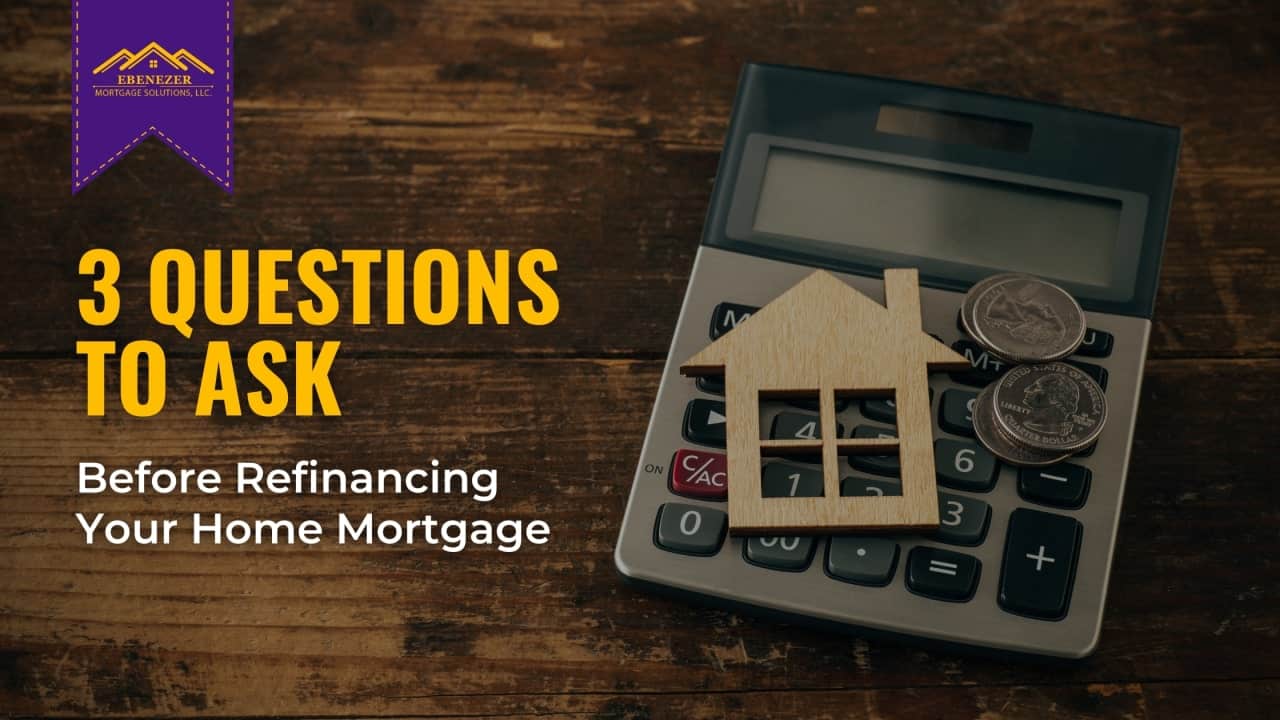Refinancing your mortgage can provide many benefits. It can lower your monthly payments, give you a shorter loan term, or allow you to use some of your equity as cash. However, refinancing is not always the right choice for every homeowner. If done carelessly, refinancing might result in additional burdens instead of benefits.
If you are planning on refinancing your mortgage, ask yourself the following questions first:
1. Why am I refinancing?
When you
refinance a mortgage, your current loan is paid off and replaced with a new one. Most people choose to refinance to take advantage of better rates or shorter terms. Others opt to cash in parts of their equity so they can use them for education, medical bills, or to increase the value of their homes.
But keep in mind that your refinanced loan is still an expense that you have to pay off every month. So careful consideration should be given to your reasons for refinancing. For example, is taking out your equity for a shopping spree right now worth it if it will take you 15 or 30 years to pay it off?
2. How long am I going to stay in this home?
Why does this matter? If you sell your house before reaching your break-even point, you'll lose money.
Refinancing a mortgage requires you to pay closing costs and fees, usually 2-6% of the loan amount. You reach the break-even point when your monthly savings have covered the costs of refinancing.
To calculate the break-even point, you only need to divide the refinance costs with your monthly savings. For example, if refinancing costs you $3,000 and you are saving $100 in monthly payments, it would take 30 months or 2.5 years before you reach the break-even point. After this point, the $100 monthly savings will be all yours.
3. Am I qualified to refinance?
The requirements needed for refinancing depends on the lender and loan type. In general, you need the following to qualify for a mortgage refinance:
- Credit score: Most lenders require homeowners to have a credit score of at least 620 before qualifying them for refinance. Although some would allow lower scores, the interest rates or fees you'll pay will be higher.
- Debt-to-income (DTI) ratio: Your DTI ratio indicates how much of your monthly gross income goes to paying off debt. Having a high DTI ratio tells lenders that you have too much debt and are more likely to miss mortgage payments. Ideally, your DTI ratio should be 36% or lower. However, combined with other positive factors, some lenders would allow a DTI ratio of 43%.
- Home equity: Home equity is the homeowner's interest in their property. As a rule of thumb, having at least 20% equity will make it easier to qualify for a mortgage refinance. However, some lenders allow borrowers with low equity to refinance, depending on other factors such as high credit scores.
Conclusion
Refinancing your mortgage, like any other financial transaction, requires careful consideration before making a decision. Answer these questions and weigh the advantages and disadvantages. At
Ebenezer Mortgage Solutions, our reputable mortgage broker can help clarify some of the concerns you might have about refinancing. Speak with a mortgage broker about refinancing today. Call us at
(813) 284-4027.

